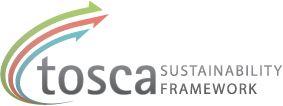
AkzoNobel: Policies
By Johan Widheden, Sofia Petersson and Sandra Bodén
Defining the company in one or a few statements can give the employees a clearer picture of their company, a stronger identity and a clearer focus on how they should act. In AkzoNobel these statements are the company values. The company values define what AkzoNobel and its employees are and what they aim to be. They reflect the way that all employees should operate both internally and externally. The AkzoNobel company values are:
- Focusing on our customers’ future first
- Embracing entrepreneurial thinking
- Developing the talents of our people
- The courage and curiosity to question
- Integrity and responsibility in our actions.
These statements are backed and elaborated in the company policies. Some of the important AkzoNobel policies are shortly described here to give you examples of ways to formualte such policies.
Code of Conduct
The business principles help the company stay successful , today and in the future, by maintaining the balance between people, profit and planet, the three pillars of sustainability.
This Code is intended to provide the people of Akzonobel with a clear overview of their obligations. In essence it captures not only the general Business Principles but also the key and relevant Company Directives and it helps all AkzoNobel employees to perform their jobs in accordance with the Company’s standards.
Carbon policy
The urgency of the climate change problem prompted AkzoNobel to establish a Carbon Policy in 2009. This policy states:
- AkzoNobel will measure the cradle-to-gate carbon footprint of its key value chains in 2009 and update these measurements every 3 years.
- AkzoNobel will reduce its cradle-to-gate carbon footprint by 10 % per metric ton of product by 2015 compared to 2009.
- AkzoNobel aims to control its absolute scope 1 & 2 greenhouse gas emissions (based on its current business portfolio) no higher than 2009 levels by offsetting organic growth entirely by energy efficiency and fuel mix improvements.
- AkzoNobel strives for a paradigm shift in carbon management through continuous innovation, aiming to reduce cradle-to-gate carbon footprint by 20-25 % per ton of product by 2020, compared to 2009.
- AkzoNobel will provide carbon-efficient solutions to customers contributing to the existing AkzoNobel objective of 30 % annual sales from eco-premium solutions by 2015.
To achieve this each Business Unit manager is responsible for developing and implementing a carbon management plan in line with the carbon policy, i.e. it should support the ambitions and targets of AkzoNobel.
EPS 2015
The AkzoNobel Eco-premium solutions concept was born in 2007 in looking for ways of translating the eco-innovation challenge into an operational target for the company. Eco-premium solutions help create value for AkzoNobel as well as its customers. Eco-premium solutions are products that provide top of the line growth opportunities because of their improved performance in areas such as raw material use, energy efficiency or emissions. AkzoNobel has the ambition to increase the share of turnover from eco-premium solutions to at least 30 percent by 2015. More on Eco-premium solutions can be found here.
Vendor policy
AkzoNobel has developed a comprehensive sourcing policy with a focus on sustainability creation for both AkzoNobel and its key suppliers. In order to achieve sustainable growth, it will be essential to build strong business relationships with the right suppliers of raw materials whose actual working practicies meet the requirements of AkzoNobel. To ensure measurable progress, AkzoNobel has created these building blocks:
- Vendor compliance letter - suppliers are to endorse the environmental and social standards as formulated in the Code of Conduct.
- Supportive Supplier Visits – in a gradual process of building sustainable relationships with key suppliers all AkzoNobel Businesses have established a program of on-site visits to their critical suppliers to identify and nurture these critical suppliers as sustainable business partners.
- Key Supplier Management Program – in this program AkzoNobel cooperates with suppliers to enhance Eco-premium Solutions for our customers.
Sustainability Focus Area’s have been defined for sourced products or services that offer significant opportunity for reducing our ecological footprint. The Focus Area’s include Logistics & Travel, Waste Management, Packaging, Carbon Management, Renewable Raw Materials, IT and Lease Cars.

